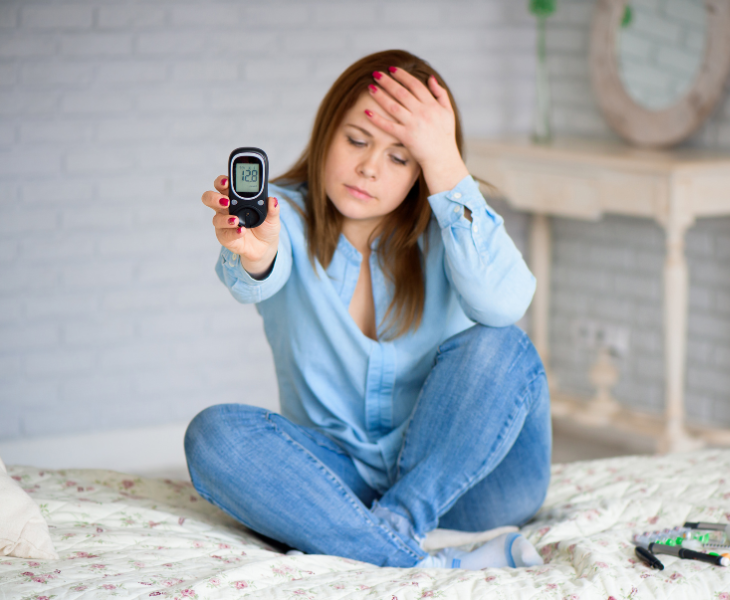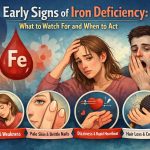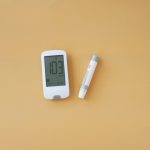Did you know that low blood sugar, or hypoglycemia, can affect adults even if they don’t have diabetes? Recognizing the early warning signs can help prevent serious health complications.
In this guide, we’ll answer the question: what are signs of low blood sugar in adults, and explore key symptoms, related causes, and what actions you should take to manage it effectively.
Table of Contents
Understanding Low Blood Sugar in Adults
What Is Hypoglycemia?
Hypoglycemia occurs when your blood glucose drops below the normal range—usually below 70 mg/dL. This condition is commonly associated with diabetes, but it can also happen to non-diabetics due to poor nutrition, alcohol intake, or certain medications.
Why Blood Sugar Matters
Your body relies on glucose for energy. When levels fall too low, the brain and muscles struggle to function properly, leading to various symptoms that should not be ignored.
Common Early Signs of Low Blood Sugar in Adults
What Are Signs of Low Blood Sugar in Adults?
Recognizing the symptoms of low blood sugar early can help prevent more severe complications like fainting, seizures, or even coma. Below are the most common signs:
1. Shakiness and Trembling
Shaking is one of the first physical signs. It results from the body’s fight-or-flight response as adrenaline increases to raise glucose levels.
2. Dizziness or Lightheadedness
If your brain lacks glucose, you may feel faint or dizzy—especially after skipping meals or intense exercise.
3. Sweating (Even When It’s Not Hot)
Excessive perspiration, particularly cold sweats, is a common response to a sudden glucose drop.
4. Rapid Heartbeat
Your heart may begin to race as your body tries to compensate for the low energy supply.
5. Blurred Vision
Vision changes can indicate blood sugar imbalance affecting your nervous system and eyes.
Behavioural and Mental Signs of Low Blood Sugar
Emotional and Cognitive Effects
Blood sugar doesn’t just affect the body—it also influences your brain. Watch for:
6. Irritability or Mood Swings
You may suddenly feel anxious, angry, or upset for no clear reason.
7. Difficulty Concentrating
When your brain isn’t fueled properly, it becomes harder to focus or remember things.
8. Confusion or Slurred Speech
Severe low blood sugar can mimic signs of intoxication or neurological issues.
Severe Symptoms to Watch Out For
Advanced Symptoms of Hypoglycemia
If not treated early, hypoglycemia can escalate. Here are late-stage symptoms:
9. Loss of Coordination
You might find it hard to walk or hold objects due to poor muscle control.
10. Seizures or Unconsciousness
Extremely low blood sugar can result in seizures, blackouts, or coma—medical emergencies that require immediate attention.
What Causes Low Blood Sugar in Adults?
Unexpected Triggers of Hypoglycemia
Even if you’re not diabetic, the following can lead to low blood sugar:
- Skipping meals or eating irregularly
- Overexercising without proper nutrition
- Alcohol consumption, especially on an empty stomach
- Medications, including insulin or oral diabetic drugs
- Hormonal disorders like adrenal or pituitary insufficiency
Learn more about causes from the Mayo Clinic’s guide on hypoglycemia.
How to Treat Low Blood Sugar Quickly
Fast and Effective Remedies
If you notice symptoms, act fast:
1. Follow the “15-15 Rule”
Consume 15 grams of fast-acting carbs (like glucose tablets or fruit juice), wait 15 minutes, and check your blood sugar again.
2. Eat Balanced Meals
Include a mix of complex carbs, proteins, and healthy fats in your diet to stabilize glucose levels.
3. Avoid Alcohol on an Empty Stomach
This can severely lower your blood sugar—especially if you’re already at risk.
When to See a Doctor
Don’t Ignore Repeated Episodes
If you experience frequent low blood sugar episodes, speak with your doctor. They may check for underlying conditions like insulinoma, adrenal insufficiency, or medication issues.
Check out this CDC resource on managing low blood sugar for additional guidance.
Final Thoughts
Stay Alert and Take Action Early
Knowing what are signs of low blood sugar in adults could be life-saving. Early detection and prompt response can help prevent serious complications. Whether you live with diabetes or not, understanding the symptoms empowers you to manage your health confidently.
Call to Action
Take control of your health today.
If you’re experiencing frequent low blood sugar symptoms, keep a food journal, monitor your glucose levels, and consult your healthcare provider. For more health tips and remedies, explore our other resources at The Planttube Blog.








